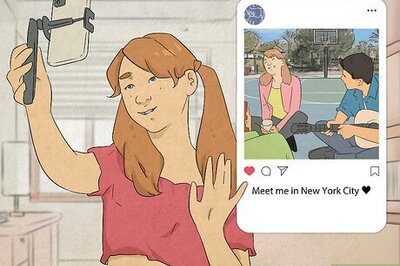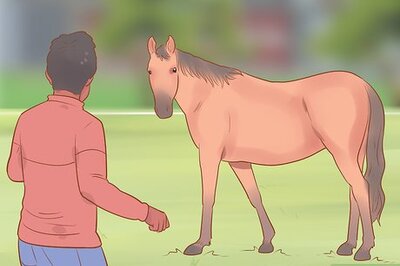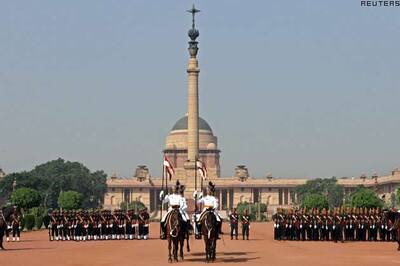
views
“Geriatric care should be given the highest priority in India, which is undergoing a demographic transition with falling mortality and fertility rate, and the ageing population – people over 65 years old is expected to grow from about 7 per cent in 2010 to 16 per cent in 2050,” said Dr Andrew Elder, Consultant Physician in Geriatric Medicine, Western General Hospital, Edinburgh, UK.
Delivering the 10th MV Arunachalam Endowment Oration on ‘Eighty not out? — Challenges of the silver innings’, organised by The Institute of Neurological Sciences, Voluntary Health Services, here on Saturday, the international expert adviser to the Hong Kong Health Authority on Geriatric Medicine, urged the Indian policy makers to build a multi-professional team to provide a comprehensive geriatric assessment and treatment taking into account diseases, symptoms, and support dependency needs of elderly, over 50 per cent of who have more than one disease – and about 30 per cent of people over 80 years are confined to their houses in India. He said that this would help avoid adverse economic and social implications that many developed countries like UK face due to poorly developed healthcare policies for elderly.
“Instead of taking patients to elderly medicine, providers should take elderly medicine to the patients, wherever they are and treat acute illnesses, care for irreversible diseases and dependencies, prevent preventable diseases like cataract, minimize effects of chronic illnesses, and care for the dying,” he suggested.
Dr Elder said that though geriatric medicine has already been the single biggest specialty in countries like UK, only one medical college in India, among 206-odd medical colleges right now has a full time geriatric MD programme. Citing a recent survey done in India, he said that about 50 per cent of senior level students from medical, nursing, and social work disciplines were unaware of policies related to health of elderly and none demonstrated recognizable knowledge of clinical and functional implications of ageing.
According to him some of the other key challenges India faces in providing geriatric care include the need to expand the provider boundaries by joining services of health and social care sectors, hospitals, community, private, public and voluntary sectors, building geriatric care services in all specialty boundaries like cardiology, neurology, etc, equal investment in both community-based primary and hospitals-based secondary care when it comes to addressing the need for acute care of elderly and equal investment in domiciliary and institutional care, when it comes to providing long term care for the elderly.
India’s dependency ratio, proportion of population depending on others, which is a key determinant of economic output, is on the rise. But social factors like fewer children in each family, increased employment opportunities for women, who were traditionally taking care of the old in India, rapid urbanization and family fragmentation, would make it difficult to provide health care to elderly. At the community level, India needs to create people to provide expert care to old people with permanent or temporary loss of independence, he observed.
Dr Elder stressed the need for people to have a more positive attitude towards old people. “Ageing is a triumph – and not a disaster, because age reflects improvement in socio-economic conditions, living standards, education and healthcare advances a country has made that enabled people to live longer,” he said. Citing a 2011 study on the prevalence of elderly mistreatment in Chennai involving 400 community-dwelling older adults aged 65 years, he said about 14 per cent of them reported of mistreatment.
Advocacy campaigns and appropriate legislation could have a role in freeing India of age-related prejudices, negative attitudes, and age discrimination at individual, corporate and institutional level, he hoped.
Others present at the oration included MV Subbiah,Trustee, Vellayan Chettiar Trust; A Vellayan, Executive Chairman, Murugappa Group, and Trustee, Vellayan Chettiar Trust; Prof Krishnamoorthy Srinivas, Chairman Emeritus, The Institute of Neurological Sciences, Voluntary Health Services (TINS-VHS) and Dr ES Krishnamoorthy, Honorary Consultant, TINS-VHS.



















Comments
0 comment